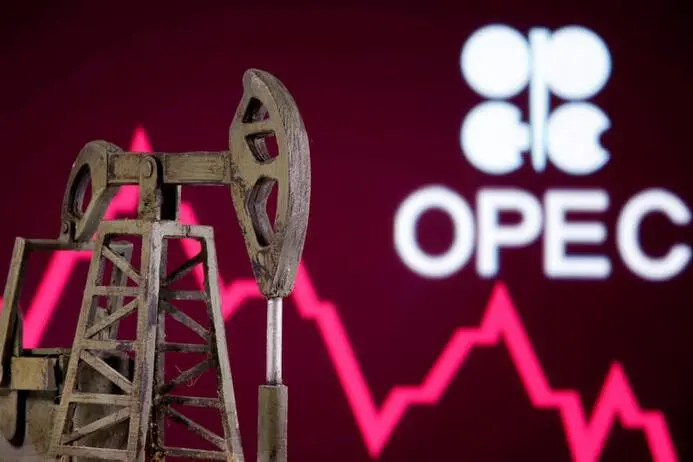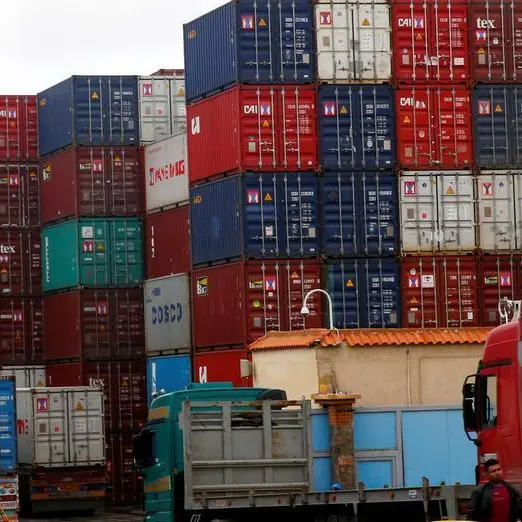PHOTO
Egypt - The Organization of the Petroleum Exporting Countries and its allies (OPEC+) have decided to cut oil production, leaving most experts baffled by the move. The plan affects Europe the most, augmenting its existent energy crisis. But does the wound go deeper than just hitting Europe to scratch global supply, eventually reaching Egypt?
The price cartels announced on October 5th that they will slash daily crude oil output to 2 million barrels per day — its biggest output cut since 2020 — curbing supply in an already tight market. The decision of the largest oil-producing countries, which includes Russia, comes at a time when much of the world is already battling rising energy prices. It also comes despite pleas from the US and others to pump more oil into the market.
Economic expert Atef Andrawes told Arab Finance that the decision indeed has its economic agenda, but should not be tied down to it because there are definitely geopolitical reasons as well.
Meanwhile, Adjunct Professor at Columbia University Jenik Radon said, “The recently announced OPEC oil production cut clearly had political intent. The reason is the timing of the cut. Why now is the question? There is simply no objective reason for such a cut now, especially as the world is in an economic downturn with a major global recession looming. The production cut will accelerate this downward.”
The move strains an already exhausted market, further exacerbating geopolitical tensions between Saudi Arabia and the US, with US President Joe Biden telling CNN that there will be “consequences” for the cut.
Against the backdrop of a strengthening US dollar, global recession, and inflation, the US is not the only one suffering nevertheless. These impediments are having their toll on all markets around the world, sending crude prices above $92 per barrel.
“Unfortunately, the expected increase in oil prices will severely hurt the poorer economies of developing nations more as they do not have the financial capability to withstand an energy price shock,” Radon says, adding that Europe, North America, and East Asia have the financial capability, but still run the risk of further weakening their own weakened economies and spurring social turmoil and possible social unrest.
Atef, on the other hand, says that the situation will have domino effect, explaining that it will be a growing force that feeds the already existent inflation, either on the global front or the local one.
The Egyptian Ministry of Foreign Affairs, however, has issued a statement on October 17th expressing its support to the position of the “sisterly Kingdom of Saudi Arabia.” In a statement that clearly depicts Egypt’s stance, the ministry said it backs Saudi Arabia’s decision given its technical considerations, as it primarily aims to achieve stability in the oil market, which will help the world deal with the current economic challenges.
When it comes to Egypt, whether or not it will get affected by such a decision depends on the oil trade balance, according to Atef. If there is a surplus, we will not be affected. The general budget could also get affected as fossil fuel subsidies have been phasing out. Thus, we could see the Fuel Automatic Pricing Committee raising prices in its quarterly meeting, he said.
Egypt reported a $2.1 billion oil trade surplus last year, coincided with a spike in oil and natural gas prices on the back of the war in Ukraine, according to balance of payments figures.
It is important to note that Egypt is a net importer of oil but exports natural gas.
According to Egypt’s budget indicators in FY 2022/2023, oil supply did not keep pace with the recovery in demand, which pushed oil prices higher along with the disruption of Russian oil supplies. However, if global oil price rises to exceed the expected assumptions, which is set at $85 per barrel, this will lead to a deterioration in the net relationship with the treasury and, consequently, an increase in the total target deficit by more than EGP 1 billion for each increase of $1 per barrel over what is estimated in the budget.
Former Minister of Petroleum Osama Kamal said during a televised phone interview on October 15th evening that the impact on Egypt is limited due to its sufficiency in natural gas, in addition to significantly reducing the import of petroleum products, and approaching 90% of dispensing with imports during the next year.
He added though that an increase of one dollar in the price of a barrel of oil puts pressure on the state's general budget, explaining that the rise in oil prices will happen instantaneously with the decision to cut production, but the rise will not last long and the price of a barrel of oil will return to decline to about $80.
Last May, Minister of Petroleum and Mineral Resources Tarek El Molla told CNBC Arabia that Egypt’s rising oil import bill could cancel out any gains from higher gas export revenues this year. “It is possible that the extra [income] we get from our gas exports could be canceled out by the increase in the price of oil and its products,” the minister said.
“Hiking oil prices, though, presents an opportunity. I see this decision to especially affect the environment,” Atef suggests on a positive note. In light of the 2022 United Nations Climate Change Conference (COP27), the economic expert concludes that this could fast-track developed countries’ sustainable goals, as most countries unfortunately are not meeting them. But does green energy currently have the full potential to fulfil the industries that run on fossil fuel?
Copyright © 2022 Arab Finance Brokerage Company All rights reserved. Provided by SyndiGate Media Inc. (Syndigate.info).




















